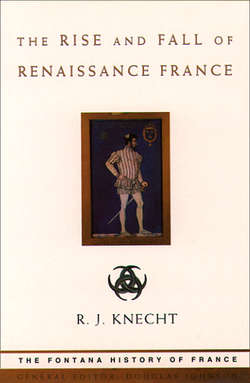Читать книгу The Rise and Fall of Renaissance France - R. Knecht J. - Страница 52
The Reuchlin affair
ОглавлениеIn 1514 the Faculty of Theology of the University of Paris was drawn into a conflict which had been raging for three years between the German humanist Johann Reuchlin (1455–1522) and the German Dominicans. Reuchlin had promoted the Talmud, the Cabala and other Jewish studies as essential to a true understanding of biblical revelation; he also believed that the Bible and all its traditional glosses and interpretations should be re-examined in the light of recent exegetical advances and of the new expertise in Greek and Hebrew. His programme, however, if implemented, was likely to disrupt the traditional curriculum of theological faculties. He was accordingly censured by a special inquisition at Mainz in October 1513, and by another in Cologne four months later. The bishop of Speyer, however, acting for the pope, cleared Reuchlin of all charges and ordered an end to the inquisition, whereupon the Cologne theologians decided to consult their colleagues in Louvain and Paris.
The Parisian doctors received the message from Cologne at the end of April 1514 and promptly set up a committee comprising representatives of the scholastic tradition and friends of humanism to examine extracts from Reuchlin’s Augenspiegel. Numerous meetings followed in the course of which the Cologne theologians sent another book by Reuchlin for examination. There was also an intervention by Duke Ulrich of Württemberg, who asked the faculty to drop its proceedings. On 2 August, however, the faculty decided against Reuchlin. His writings were described as ‘strongly suspect of heresy, most of them smacking of heresy and some actually heretical’. The faculty asked for the suppression of the Augenspiegel and the author’s unconditional retraction. What happened next is not clear. The faculty received a letter from the papal Curia in April 1515, which probably expressed surprise at the decision passed in August, and it ceased to discuss Reuchlin after 2 May. Traditionally, historians have seen the Reuchlin affair as marking a decisive break in the University of Paris between the ‘Old Learning’ and the ‘New’. It was the first serious conflict between schoolmen and humanists. Henceforth Erasmus and Lefèvre d’Etaples were seen by their friends as pursuing the same quest for a deeper faith, and by their enemies as sharing the same heresy.
